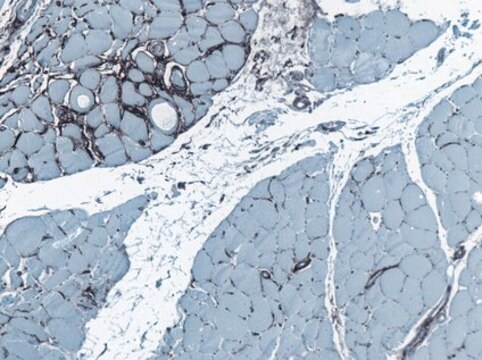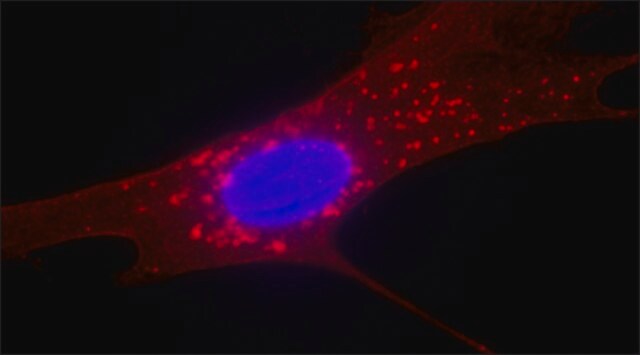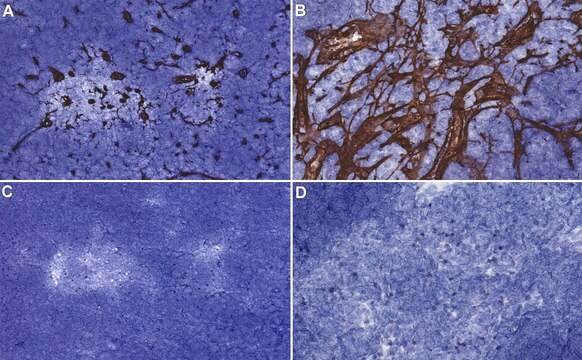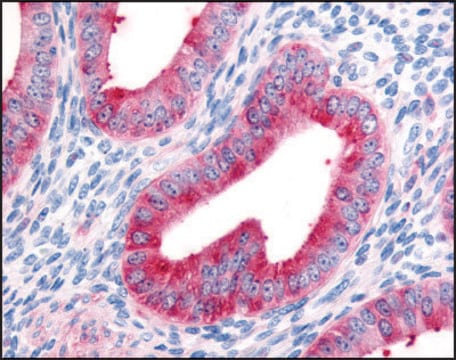F4771
Monoclonal Anti-Fibroblast Surface Protein antibody produced in mouse
clone 1B10, ascites fluid
Sinónimos:
Fibroblast Surface Protein Antibody, Fibroblast Surface Protein Antibody - Monoclonal Anti-Fibroblast Surface Protein antibody produced in mouse
About This Item
IHC (f)
complement-mediated cytotoxicity assay
flow cytometry: suitable
immunohistochemistry (frozen sections): suitable
Productos recomendados
biological source
mouse
Quality Level
conjugate
unconjugated
antibody form
ascites fluid
antibody product type
primary antibodies
clone
1B10, monoclonal
mol wt
antigen 43-72-80 kDa
contains
15 mM sodium azide
species reactivity
human
technique(s)
complement-mediated cytotoxicity assay: 1:500
flow cytometry: suitable
immunohistochemistry (frozen sections): suitable
isotype
IgM
shipped in
dry ice
storage temp.
−20°C
target post-translational modification
unmodified
General description
Immunogen
Application
Immunofluorescence (1 paper)
Immunohistochemistry (1 paper)
- immunofluorescence
- flow cytometry
- immunohistochemistry
- immunoblotting
Biochem/physiol Actions
Target description
Analysis Note
Disclaimer
¿No encuentra el producto adecuado?
Pruebe nuestro Herramienta de selección de productos.
Optional
Storage Class
10 - Combustible liquids
wgk_germany
nwg
flash_point_f
Not applicable
flash_point_c
Not applicable
Elija entre una de las versiones más recientes:
Certificados de análisis (COA)
¿No ve la versión correcta?
Si necesita una versión concreta, puede buscar un certificado específico por el número de lote.
¿Ya tiene este producto?
Encuentre la documentación para los productos que ha comprado recientemente en la Biblioteca de documentos.
Los clientes también vieron
Nuestro equipo de científicos tiene experiencia en todas las áreas de investigación: Ciencias de la vida, Ciencia de los materiales, Síntesis química, Cromatografía, Analítica y muchas otras.
Póngase en contacto con el Servicio técnico









